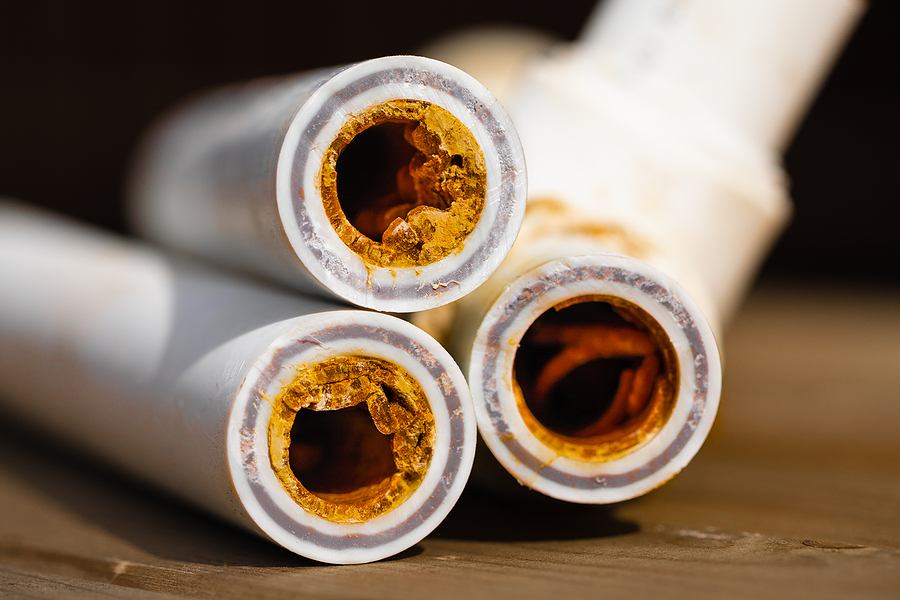
October 18/2023
Are My Pipes Corroded?
Pipe corrosion is a common phenomenon that can have many causes. It works silently, eating away at the metal of your pipes, causing them to weaken and eventually collapse. If left untreated, corrosion can expose your home to water leaks and lead to water quality problems.
In this guide, Mr. Rooter Plumbing outlines the common causes of corrosion and the signs to watch out for. We will also look into the measures you can take to prevent pipe corrosion.
What Causes Pipe Corrosion?
Hard water contains a high concentration of dissolved minerals, primarily calcium and magnesium. These minerals can cause scale buildup inside pipes, resulting in corrosion and leaks. If you live in an area with hard water, it’s a good idea to install a whole-home water softener as a preventive measure.
Oxygenated water can speed up oxidation and cause metal pipes to rust. It’s advisable to have a reputable plumbing service test your water quality.
Acidic water is one of your plumbing pipes’ worst enemies. It can dissolve the protective layer in pipes and cause corrosion. Maintaining the water within a neutral pH range can help reduce corrosion.
Frequent use of liquid drain cleaners can significantly accelerate corrosion, not to mention the risk of clogging your drains. Instead of relying on chemical drain cleaners, you’re better off calling a professional to clean your drains.
Signs of Pipe Corrosion
Some easy-to-spot signs that your plumbing is corroded include:
- Cloudy or discolored water coming out of your faucets
- Low water pressure
- Water that tastes metallic
- Visible corrosion on pipes—a reddish, brown, flaky substance on pipes
If you notice these signs, it’s advisable to reach out to a skilled plumber to inspect your plumbing and provide you with recommendations. In cases of extensive or severe corrosion, where the structural integrity of the pipe is compromised, pipe replacement is often the most effective and long-lasting solution.
How I Prevent Pipe Corrosion
Regular water testing helps you stay informed about any changes in water quality, allowing you to take timely action. If your water supply is known to be hard or has a high mineral content, consider using a water softener or filtration system to reduce the corrosive elements.
- Avoid using liquid chemical drain cleaners
Chemical drain cleaners can do more harm than good. They are highly caustic and can corrode the pipes over time. Opt for safer and more effective alternatives, like using a drain snake or environmentally-friendly drain cleaning products. Your pipes will thank you for it in the long run.
Pipe insulation may not be the first thing that comes to mind when thinking about corrosion, but it's actually a good preventive measure. Insulating your pipes can help regulate the temperature of the water running through them. Why does this matter? Well, temperature extremes can speed up corrosion processes. By keeping your pipes snugly insulated, you reduce the chances of sudden temperature changes that can contribute to corrosion.
- Regular plumbing inspection
Getting your plumbing system checked regularly by a professional plumbing service is like giving your pipes a health check-up. It's essential in spotting early signs of corrosion or any potential issues. A trained eye can identify vulnerable areas, worn-out sections, or signs of trouble that might escape your notice. Routine plumbing inspections are a proactive way to catch problems before they turn into costly and inconvenient repairs.
Contact Mr. Rooter Plumbing to Repair or Replace Your Corroded Pipes
If you have noticed signs of corrosion in your pipes, act fast to avoid plumbing disasters. Contact Mr. Rooter Plumbing for help identifying the cause and repairing or replacing your corroded pipes.




